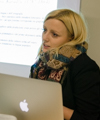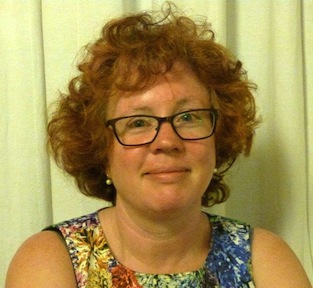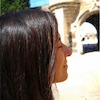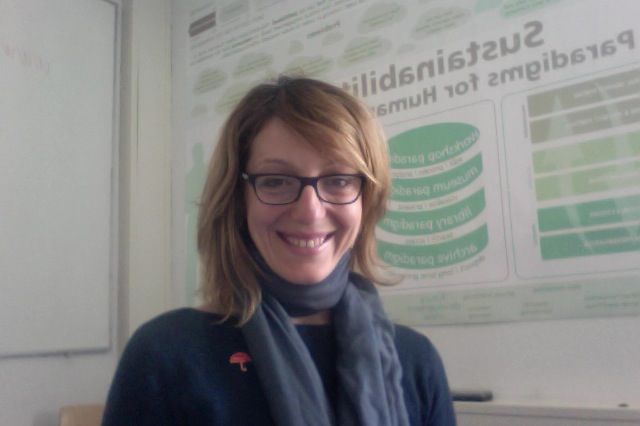Studying at the University of Verona
Here you can find information on the organisational aspects of the Programme, lecture timetables, learning activities and useful contact details for your time at the University, from enrolment to graduation.
Academic calendar
The academic calendar shows the deadlines and scheduled events that are relevant to students, teaching and technical-administrative staff of the University. Public holidays and University closures are also indicated. The academic year normally begins on 1 October each year and ends on 30 September of the following year.
Course calendar
The Academic Calendar sets out the degree programme lecture and exam timetables, as well as the relevant university closure dates..
| Period | From | To |
|---|---|---|
| Semester 1 | Oct 2, 2017 | Jan 20, 2018 |
| Semester 2 | Feb 26, 2018 | Jun 9, 2018 |
| Session | From | To |
|---|---|---|
| Winter session | Jan 22, 2018 | Feb 24, 2018 |
| Summer session | Jun 11, 2018 | Jul 28, 2018 |
| Autumn session | Aug 27, 2018 | Sep 22, 2018 |
| Session | From | To |
|---|---|---|
| LAUREE LINGUE - sessione autunnale a.a. 2016/2017 | Dec 18, 2017 | Dec 21, 2017 |
| LAUREE LINGUE - sessione invernale a.a. 2016/2017 | Mar 23, 2018 | Mar 29, 2018 |
| LAUREE LINGUE - sessione estiva | Jul 16, 2018 | Jul 21, 2018 |
| LAUREE LINGUE - sessione autunnale | Nov 12, 2018 | Nov 17, 2018 |
| LAUREE LINGUE - sessione invernale | Apr 12, 2019 | Apr 18, 2019 |
| Period | From | To |
|---|---|---|
| All Saints Day | Nov 1, 2017 | Nov 1, 2017 |
| Immaculate Conception | Dec 8, 2017 | Dec 8, 2017 |
| Christmas break | Dec 22, 2017 | Jan 7, 2018 |
| Easter break | Mar 30, 2018 | Apr 3, 2018 |
| Liberation Day | Apr 25, 2018 | Apr 25, 2018 |
| Labour Day | May 1, 2018 | May 1, 2018 |
| Patron Saint Day | May 21, 2018 | May 21, 2018 |
| Republic Day | Jun 2, 2018 | Jun 2, 2018 |
| Summer break | Aug 13, 2018 | Aug 18, 2018 |
Exam calendar
Exam dates and rounds are managed by the relevant Foreign Languages and Literatures Teaching and Student Services Unit.
To view all the exam sessions available, please use the Exam dashboard on ESSE3.
If you forgot your login details or have problems logging in, please contact the relevant IT HelpDesk, or check the login details recovery web page.
Academic staff
 alessandro.bigardi@univr.it
alessandro.bigardi@univr.it

Bradas Marija
 marija.bradas@univr.it
marija.bradas@univr.it
 paolamaria.caleffi@univr.it
paolamaria.caleffi@univr.it
 veronica.gobbato@univr.it
veronica.gobbato@univr.it
 tiziana.mancinelli@univr.it
tiziana.mancinelli@univr.it
 sara.paolini@univr.it
sara.paolini@univr.it
 fabioantonio.scrignoli@univr.it
fabioantonio.scrignoli@univr.it
Study Plan
The Study Plan includes all modules, teaching and learning activities that each student will need to undertake during their time at the University.
Please select your Study Plan based on your enrollment year.
1° Year
| Modules | Credits | TAF | SSD |
|---|
1st foreign language2nd foreign language1st foreign literature2nd foreign literature2° Year activated in the A.Y. 2018/2019
| Modules | Credits | TAF | SSD |
|---|
1st foreign language2nd foreign language1st foreign literature2nd foreign literatureOne course to be chosen among the following3° Year activated in the A.Y. 2019/2020
| Modules | Credits | TAF | SSD |
|---|
1st foreign language2nd foreign languagePhilology of the first or second language| Modules | Credits | TAF | SSD |
|---|
1st foreign language2nd foreign language1st foreign literature2nd foreign literature| Modules | Credits | TAF | SSD |
|---|
1st foreign language2nd foreign language1st foreign literature2nd foreign literatureOne course to be chosen among the following| Modules | Credits | TAF | SSD |
|---|
1st foreign language2nd foreign languagePhilology of the first or second language| Modules | Credits | TAF | SSD |
|---|
Legend | Type of training activity (TTA)
TAF (Type of Educational Activity) All courses and activities are classified into different types of educational activities, indicated by a letter.
Spanish Literature I (2017/2018)
Teaching code
4S00853
Credits
9
Coordinator
Language
Italian
Also offered in courses:
- Spanish literature (i) of the course Bachelor’s degree in Humanities
The teaching is organized as follows:
Learning outcomes
------------------------
MM: PARTE I
------------------------
The main objective of the course (within the Languages and Cultures for Publishing) is the acquisition of advanced skills in the field of Spanish contemporary literature. The expected learning outcomes are as follows: - Knowledge and understanding: a depth knowledge of the Spanish literature of the considered period: historical context, texts, genres, movements and authors taught in the course. - Applied knowledge and understanding skills: the student will acquire the methodologies necessary to work on literary texts in historical and comparative perspectives and the ability to understand complex texts and implicit meanings. - Autonomy of judgment: the student must demonstrate the ability to contextualize tackled literary phenomena and to actualize cultural elements of enduring validity. - Communicative Skills: At the end of the course the student must have acquired the ability to express himself and argue about the contents of the teaching both in written and oral language. He/she will have to be able to express and argue the same content even in Spanish, at least at a basic level. - Learning Skills: Students should have developed self-sufficient learning skills to deal with the successive courses of the Spanish Literature.
------------------------
MM: PARTE II
------------------------
The main objective of the course (within the Languages and Cultures for Publishing) is the acquisition of advanced skills in the field of Spanish contemporary literature. The expected learning outcomes are as follows: - Knowledge and understanding: a depth knowledge of the Spanish literature of the considered period: historical context, texts, genres, movements and authors taught in the course. - Applied knowledge and understanding skills: the student will acquire the methodologies necessary to work on literary texts in historical and comparative perspectives and the ability to understand complex texts and implicit meanings. - Autonomy of judgment: the student must demonstrate the ability to contextualize tackled literary phenomena and to actualize cultural elements of enduring validity. - Communicative Skills: At the end of the course the student must have acquired the ability to express himself and argue about the contents of the teaching both in written and oral language. He/she will have to be able to express and argue the same content even in Spanish, at least at a basic level. - Learning Skills: Students should have developed self-sufficient learning skills to deal with the successive courses of the Spanish Literature.
Program
------------------------
MM: PARTE I
------------------------
The course is divided into two parts: Part I will provide the coordinates for the knowledge of the main movements, authors and genres of Spanish literature of the twentieth century, focusing in particular on the novel and the development of the detective genre. Part II will explore the female Spanish detective novel and work of Alicia Giménez Bartlett. The topics planned for Part I are as follows: - History: the Cuban crisis of '98, the Second Republic, Franco, the democratic transition - Literature: the Avant-gardes, the Generation of '27, the novel during Franco's dictatorship, the detective novel from the early twentieth century to the Transition - Texts: anthology of texts by the major Spanish writers of the twentieth century included in the manual of Fausta Antonucci and in the materials uploaded to the e-learning portal. Detailed analysis of two detective novels by Manuel Vázquez Montalbán and Eduardo Mendoza. Teaching Mode: Teaching will take place in Italian and Spanish through frontal teaching, case studies and e-learning. The course will have an e-learning platform, which will contain mandatory contents and optional materials. For students who do not have a previous Spanish language education, we will consider the possibility of organizing support courses. This program is also valid for non-attending students who, however, are advised to contact the teacher during the reception hours. Throughout the academic year, the individual reception service managed by the teacher is available, at the timetable indicated on the web pages (no need to set a specific appointment).
------------------------
MM: PARTE II
------------------------
The course is divided into two parts: Part I will provide the coordinates for the knowledge of the main movements, authors and genres of Spanish literature of the twentieth century, focusing in particular on the novel and the development of the detective genre. Part II will explore the female Spanish detective novel and work of Alicia Giménez Bartlett. The topics planned for Part II are as follows: - Cultured literature and popular literature in the Spanish twentieth century - The detective novel: birth and evolution of the genre, diffusion in Spain - Texts: Ritos de muerte by Alicia Giménez Bartlett Teaching Mode: Teaching will take place in Italian and Spanish through frontal teaching, case studies and e-learning. The course will have an e-learning platform, which will contain mandatory contents and optional materials. For students who do not have a previous Spanish language education, we will consider the possibility of organizing support courses. This program is also valid for non-attending students who, however, are advised to contact the teacher during the reception hours. Throughout the academic year, the individual reception service managed by the teacher is available, at the timetable indicated on the web pages (no need to set a specific appointment).
Bibliography
| Author | Title | Publishing house | Year | ISBN | Notes |
|---|---|---|---|---|---|
| Fausta Antonucci | 1 Il Novecento letterario spagnolo: percorsi | ETS | 2005 | ||
| Francisco Rico | 3 Biblioteca spagnola | Einaudi | 1994 | manuale di approfondimento facoltativo | |
| Stefano Neri | Dispensa e antologia del corso sul portale E-learning | 2021 | |||
| Eduardo Mendoza | El misterio de la cripta embrujada | Seix barral / Planeta | 1979 | lettura integrale in alternativa al romanzo di Vazquez Montalban | |
| Julio Valdeón, Joseph Pérez, Santos Juliá | Historia de España | Austral | 2005 | solo i capitoli sul Novecento, in alternativa al testo di Di Febo, Santos Julià, Il franchismo | |
| Giuliana Di Febo; Santos Juliá | Il franchismo | Carocci | 2003 | ||
| Alicia Giménez Bartlett | Ritos de muerte | Destino | 1996 | ||
| Manuel Vázquez Montalbán | Tatuaje | Planeta | 1976 | lettura integrale in alternativa al romanzo di Eduardo Mendoza | |
| L. Rodríguez Cacho, | 3 Manual de historia de la literatura española. Vol. II, Siglos XVIII al XX, Castalia | Castalia | 2017 | pp. 241-326, pp. 379-548 |
Examination Methods
------------------------
MM: PARTE I
------------------------
The exam takes place in Italian and Spanish and consists of an interview aimed at verifying the depth and breadth of the matured knowledge, the analytical and argumentative ability, the ability to systematically connect knowledge, the property of language. The exam covers the topics covered throughout the program, divided into Part I and Part II. Students will have the opportunity to take an informal and optional written exam based on the blocks of history and literature (open questions and multiple-choice tests). For those who get a positive result for this test, the oral exam will only focus on the text commentary (reading, translating, contextualizing, analyzing a text fragment).
------------------------
MM: PARTE II
------------------------
Students wishing to take the exam only for part II of the program (3 ECTS) are asked to contact the teacher to agree on the modalities. Anyhow the exam takes place in Italian and Spanish and consists of an interview aimed at verifying the depth and breadth of the matured knowledge, the analytical and argumentative ability, the ability to systematically connect knowledge, the property of language.
Type D and Type F activities
To discover all the teaching activities accredited by the foreign teaching college click here
Career prospects
Module/Programme news
News for students
There you will find information, resources and services useful during your time at the University (Student’s exam record, your study plan on ESSE3, Distance Learning courses, university email account, office forms, administrative procedures, etc.). You can log into MyUnivr with your GIA login details: only in this way will you be able to receive notification of all the notices from your teachers and your secretariat via email and soon also via the Univr app.
Student login and resources
Assegnazione tutore
Attività accreditate D/F
Calendario didattico dettagliato
Cambio lingua curriculare
Competenze informatiche
Competenze linguistiche (prima e seconda lingua)
Competenze linguistiche in triennale (terza lingua CFU F)
Compilazione del piano didattico
Corso di Lingua portoghese
Erasmus+ e altre esperienze all'estero
Linguistic training CLA
Graduation
List of theses and work experience proposals
| Stage | Research area |
|---|---|
| PROGETTO MAMBRINO Stage per bibliografia | Various topics |
Stage e tirocini
Nel piano didattico della laurea triennale in Lingue e culture per l’editoria (L11 ED) è previsto un tirocinio/stage obbligatorio (CFU 6).
Le attività di stage sono finalizzate a far acquisire allo studente una conoscenza diretta in settori di particolare interesse per l’inserimento nel mondo del lavoro e per l’acquisizione di abilità professionali specifiche.
Le attività di stage sono svolte sotto la diretta responsabilità di un singolo docente presso studi professionali, enti della pubblica amministrazione, aziende accreditate dall’Ateneo veronese.
I crediti maturati in seguito ad attività di stage saranno attribuiti secondo quanto disposto nel dettaglio dal “Regolamento d’Ateneo per il riconoscimento dei crediti maturati negli stage universitari” vigente.
- Tutte le informazioni in merito agli stage per futuri studenti sono disponibili alla pagina Stage e tirocini.
- Tutte le informazioni in merito agli stage per studenti iscritti sono pubblicate in MyUnivr - come fare per - stage e tirocini.
- Tutte le informazioni in merito agli stage per le aziende sono disponili alla pagina Stage e tirocini per azienze.
Ulteriori informazioni al seguente link https://www.univr.it/it/i-nostri-servizi/gestione-carriere-studenti-lingue-e-letterature-straniere/stage-e-tirocini-lingue-e-letterature-straniere


 +39 045802 8465
+39 045802 8465





























